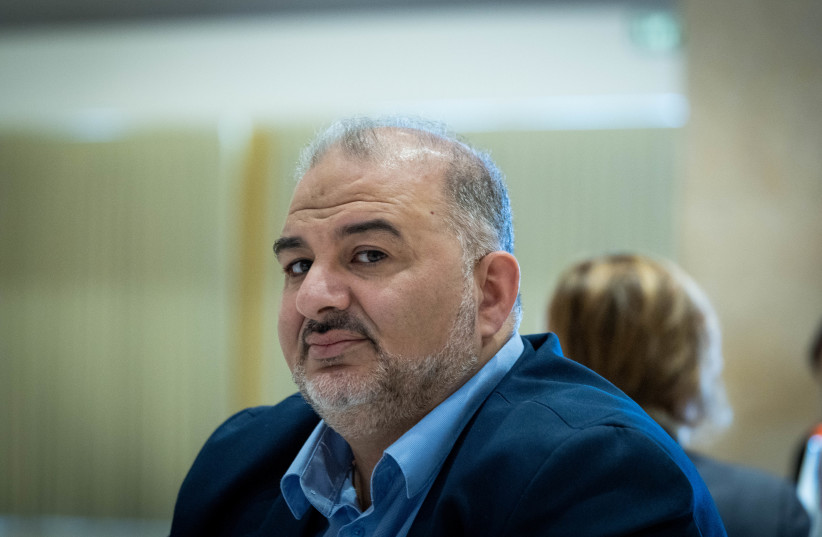The change government collapsed and at least some are claiming it proves having Arab parties in a ruling coalition has been a failure. During a plenary, Yamina MK Nir Orbach jumped out of his seat, walked over to Ra’am MK Mazen Ghanaim – the coalition member who seconds earlier had voted against the bill – and yelled: “You don’t want to be partners. The experiment with you has failed.”
However, others believe Israel has turned the corner and the continued inclusion of Arab parties in a ruling coalition is very likely to continue. This is certainly the position of Ron Gerlitz, former director of Sikkuy, an NGO that was very instrumental in helping the Joint List gain legislative victories in Netanyahu-led governments.
Gerlitz has recently pointed out that the Jewish public has changed dramatically their view of Arab parties in the past year. On the eve of the last election, virtually no Jews on the Right and only a minority in the Center supported Arab entrance into the ruling coalition. By contrast, in March 2022, within the Center there is now a clear majority supporting political cooperation with Arab parties (42% support, 30% object, 28% undecided); and on the Right there is almost 25% support.
What steadfastly he refused to discuss is the crucial role that Mansour Abbas played in this transformation. As Yossi Klein Halevi noted:
“Creating an historic precedent, Mansour Abbas became the first head of an Arab party to accept Israel’s Jewishness. Israel,” he said, “was founded as a Jewish state and will remain a Jewish state. He spoke those stunning words in Hebrew and then repeated them in Arabic, to ensure that there would be no misunderstanding of his intent.

“For years we Jews have rightly insisted that the core of the Palestinian-Israeli conflict is the refusal of Palestinian leaders (including Palestinian citizens of Israel) to come to terms with our indigenousness in this land... but this government has proven that when Jews truly own Israel’s democratic identity and treat Arabs as equal players, an opening is created for Arab acceptance of Israel’s Jewish identity. That dynamic will be a long and slow process, as much of Abbas’s party has followed him only reluctantly. But Abbas, who is denounced by Hamas as a traitor and is the target of death threats, has taken a step from which there is no turning back.”
GERLITZ IS unwilling to recognize Abbas’ crucial role because he is an uncritical supporter of the Joint List. He ignores how the Joint List vilified Abbas for his willingness to be part of a ruling coalition, for his acceptance of Israel as a Jewish state. While the Joint List has trivialized the benefits Ra’am gained through legislation, the most serious shortfall has been its willingness to embrace Palestinian nationalism so that unlike Ra’am, has put unity with militant Palestinian nationalists ahead of gaining material benefits for Arab citizens of Israel. This was reflected in their approach to the unrest in mixed cities after the Gaza conflict and the Temple Mount conflicts during the last two years.
But what is quite clear has been their unwillingness to support the government’s strategy: shrink the conflict. Over the last year the government has attempted to sidestep flashpoints that could erupt into escalating conflict. This included increasing West Bank Palestinians working in Israel, expanding Palestinian housing in the Jordan Valley and stopping the removal of illegal Bedouin villages near Ma’aleh Adumim. The clearest example was the Joint List’s response to the housing conflict in Sheikh Jarrah. Despite the undisputed evidence that the housing had belong to Jewish owners, the government arranged for the Palestinian residents to stay in the housing for 15 years at minimal rent.
What was the posture of the Joint List?
Along with the Palestinian nationalists, it pressured the families to reject the offer. Indeed, to make clear its attitude, Ayman Odeh publicly urged Arab of Israel police to refuse to serve in east Jerusalem. This action made it impossible for Lapid to continue to see Joint List support for the change government.
Gerlitz ignores all these uncomfortable facts and dreams of Lapid-led government that would take seriously two-state negotiation with the Palestinian Authority and would include the Joint List. Moreover, he castigates Ra’am – always calling them UAL – for their willingness to join a Netanyahu-led coalition. He writes, “the UAL has already shown that it is willing to partner with the most racist forces in Israel by its readiness in April 2022 to join Netanyahu, Ben-Gvir and Smotrich in an extreme right-wing government.” This is incorrect since at the conclusion of the last election, Ra’am explicitly rejected joining a Netanyahu government that included Smotrich.
Abbas’ willingness to join an appropriate Netanyahu-led government reflects his desire to win reforms for Arab citizens of Israel and the positive experience with previous Netanyahu-led governments. Abbas’ efforts with the change government showed a steady hand in negotiating complex situations. This is not only what Arab citizens need but what Israel needs.
The writer is a recently retired Brooklyn College economist and author of Why the Jews? How Jewish Values Transformed Twentieth Century American Pop Culture.
